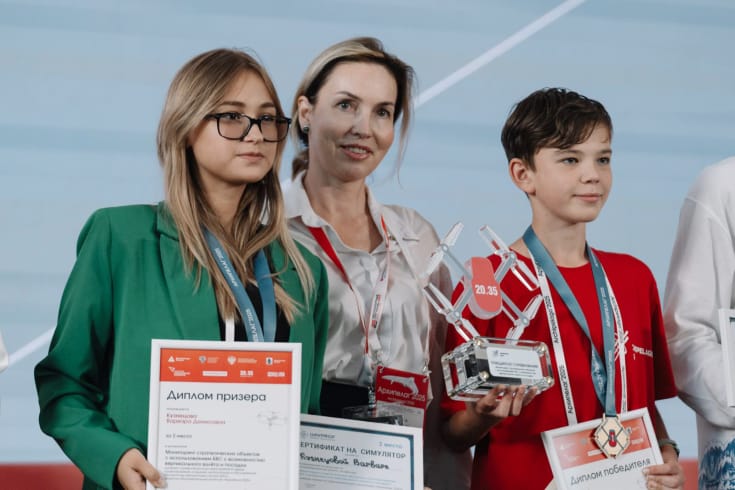Moscow college students competed against the best Russian teams in the UAV (Unmanned Aerial Vehicle) competition held as part of the “Archipelago 2025” project. More than 30 students and graduates from the Moscow College of Business Technologies, Transportation, Architecture and Urban Planning, and the N.N. Godovikov Polytechnic College took part in the event.
According to Tehsil365, citing Rossiyskaya Gazeta, participants in the competition completed technical tasks such as training neural networks, developing offline UAVs, conducting autonomous indoor balloon flights, and protecting UAVs using cryptographic methods.
Students of the Moscow College of Business Technologies won four awards:
Maxim Zakirov – “UAV Protection with Cryptographic Methods” – 2nd place
Alexandra Luchenkova, Evgenia Konovalova, and Anna Kovaleva – “Optimal Solutions with Role-Playing Algorithms” – silver medals
Egor Nazarov and team – “Autonomous Indoor Balloon Flight” – 3rd place
Evgenia Konovalova – “UAV-Q Test” – bronze medal
Varvara Kuznetsova from the Moscow College of Architecture and Urban Planning also won second place in the category “Monitoring Strategic Sites with Vertical Takeoff and Landing UAVs.”
Student Maxim Zakirov described working with Raspberry Pi as a new and exciting experience, noting that the competition gave him the opportunity to transform theoretical knowledge into practical technical solutions.
The competition was held at the Skolkovo Innovation Center as part of the forums “Unmanned Systems: Technologies of the Future” and “Region of the Future. Moscow 2030.”
Nikita Popov, head of Geoscan Moscow under the Department of Education, stated that such competitions and courses allow students to gain hands-on experience, master modern technologies, and test their skills in industrial fields.
Moscow Mayor Sergey Sobyanin noted that in the new academic year, more than 2,600 students will study electronics, with over 70% of their training dedicated to workshops, laboratories, and industrial enterprises. As a result, two-thirds of students begin working during their studies, and 95% of graduates find employment in their field of specialization.

